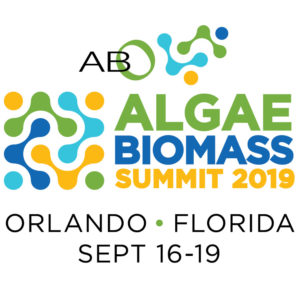Are you committed to commercializing new algae technologies? It’s time to get ahead of federal funding opportunities.
Algae cultivation, production and processing technologies have come a long way over the past decade. Successfully funding these innovations has been largely due to some dynamic collaborations between entrepreneurs, universities, national laboratories and federal agencies supporting cutting-edge technology advances and the economic benefits that can come with them.
The U.S. Department of Energy’s recently announced $79 million opportunity is one example of how federal support for R&D projects is propelling a new ecosystem of algae products and services. Other agencies working to improve the role of algae in the bioeconomy include the National Oceanic and Atmospheric Administration, the Environmental Protection Agency, the National Science Foundation and the Food and Drug Administration.
And beginning in 2019, the Department of Agriculture is preparing to offer millions in new funding to support the algae industry, thanks to a dramatic change in the latest Farm Bill advocated by ABO.
Now is the time for algae technology developers to explore these opportunities. We connected with some of our most experienced members and consultants to build a set of guidelines that can set more algae research projects on track for federal funding.
“Starting early may be the single most important step,” says Tim Zenk, principal at Molecule and a consultant with years of experience helping algae companies collaborate with federal agencies.
These guidelines are not exhaustive, but if you’re thinking of engaging with federal funding, they are some of the most important to keep in mind:
Start building relationships early
- The DOE, USDA and other funding agencies have dedicated staff that are designing and awarding technology development grants. They can be incredible resources for those that might apply for funding. Find out who is staffing the programs of interest and introduce yourself.
- Most funding opportunities are won by wide-ranging collaborations between several partners working together. Seek out and connect with the universities and national labs that you might be able to partner with for a proposal. Take a look at some of the previous winners to see what models have worked in the past.
Have your data in good shape
- Agencies are tasked with supporting the most worthy projects, and they will need to see rigorous data in your proposals. Make sure your science is sound, and that your engineering is ready for review.
- In most cases you will need more than theory. You will have to show what production experience you’ve had so far, or what scale of operations you are ready for today.
Know the funding announcements inside and out
- Make sure you understand the overarching goals behind the funding opportunities, and how you can help meet them.
- Some proposals are rejected because they fail to address small but crucial requirements that are spelled out in the funding announcement. Comb through the text and graphics provided by the funding agencies to ensure you can meet the appropriate production targets, design qualifications, etc.
- Look at the specific collaborators and other parties that are mentioned in the funding application materials. Find out what laboratories or other entities might be expected to participate and build them into your own network.
What to expect if you win an award
- Congratulations! Collaborating with a federal agency is a big responsibility, but there is no reason it should be overwhelming.
- Be ready to meet tight deadlines. Funding opportunities are built to meet goals around technology improvement, commercial production and economic development. There are hundreds of players and working with agency staff to get the timelines right will be important.
- You won’t have to share sensitive IP or trade secrets (unless otherwise clarified in the application process), but some information you share with agencies will be made public. Find out what comments, emails and reporting could be released.
- Be ready to meet reporting requirements. They won’t be overwhelming, but they are an important part of the process. Agencies want you to be successful, but lessons of unexpected results or even failures will be viewed as valuable.
If you don’t win
- Don’t be discouraged. This is a competitive process and agencies take care to evaluate and select the most worthy projects. Find out what you can do to make a stronger case the next time around.
“Follow the rules, have good science, and you’ll have a good shot,” says Zenk.
Ready to learn more?
ABO maintains a network of experts, consultants and contractors that are all standing by to help algae technology developers succeed when it comes to taking advantage of federal support. Reach out to get connected!
Ready to connect with the leaders of the algae industry? Come network with CEOs, federal agency staff, industry suppliers and others at the Algae Biomass Summit!

